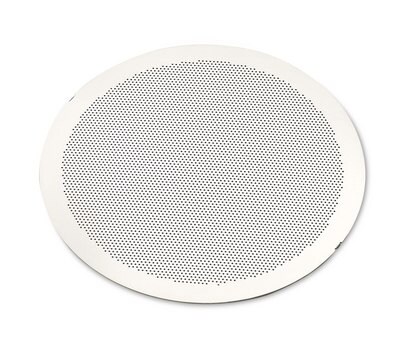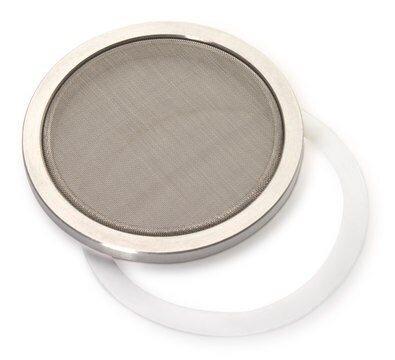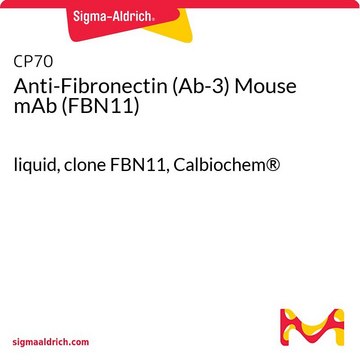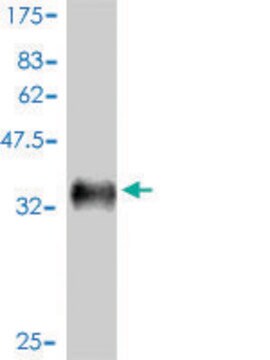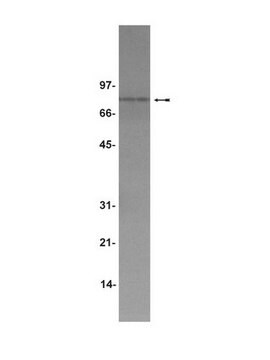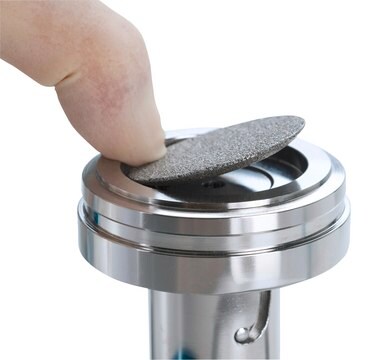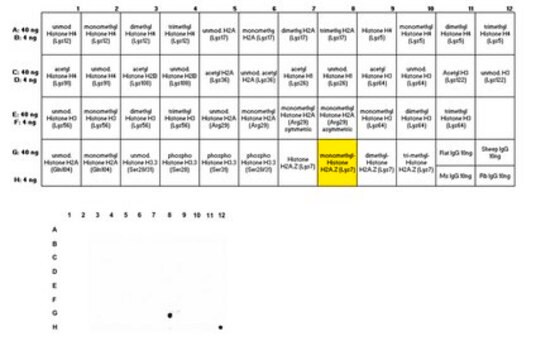MABN726
Anti-EphB2 Antibody, clone 2D12C6
ascites fluid, clone 2D12C6, from mouse
Synonyme(s) :
Ephrin type-B receptor 2, EPHB2 protein
About This Item
IHC
WB
immunohistochemistry: suitable
western blot: suitable
Produits recommandés
Source biologique
mouse
Niveau de qualité
Forme d'anticorps
ascites fluid
Type de produit anticorps
primary antibodies
Clone
2D12C6, monoclonal
Espèces réactives
rat, human
Technique(s)
immunocytochemistry: suitable
immunohistochemistry: suitable
western blot: suitable
Isotype
IgG2b
Numéro d'accès UniProt
Conditions d'expédition
wet ice
Modification post-traductionnelle de la cible
unmodified
Informations sur le gène
human ... EPHB2(2048) , EphB2(2048)
rat ... EphB2(313633)
Description générale
Immunogène
Application
Immunohistochemistry Analysis: 1:200 to 1:1,000 dilution from a representative lot detected EphB2 in rat cerebellum, pons/midbrain, and hippocampus tissues. Optimal working dilutions must be determined by end user.
Neuroscience
Developmental Neuroscience
Qualité
Western Blot Analysis: A 1:500 dilution of this antibody detected EphB2 in 10 µg of IMR-32 cell lysate.
Description de la cible
Forme physique
Stockage et stabilité
Handling Recommendations: Upon receipt and prior to removing the cap, centrifuge the vial and gently mix the solution. Aliquot into microcentrifuge tubes and store at -20°C. Avoid repeated freeze/thaw cycles, which may damage IgG and affect product performance.
Remarque sur l'analyse
IMR-32 cell lysate
Clause de non-responsabilité
Vous ne trouvez pas le bon produit ?
Essayez notre Outil de sélection de produits.
Code de la classe de stockage
12 - Non Combustible Liquids
Classe de danger pour l'eau (WGK)
nwg
Point d'éclair (°F)
Not applicable
Point d'éclair (°C)
Not applicable
Certificats d'analyse (COA)
Recherchez un Certificats d'analyse (COA) en saisissant le numéro de lot du produit. Les numéros de lot figurent sur l'étiquette du produit après les mots "Lot" ou "Batch".
Déjà en possession de ce produit ?
Retrouvez la documentation relative aux produits que vous avez récemment achetés dans la Bibliothèque de documents.
Notre équipe de scientifiques dispose d'une expérience dans tous les secteurs de la recherche, notamment en sciences de la vie, science des matériaux, synthèse chimique, chromatographie, analyse et dans de nombreux autres domaines..
Contacter notre Service technique

